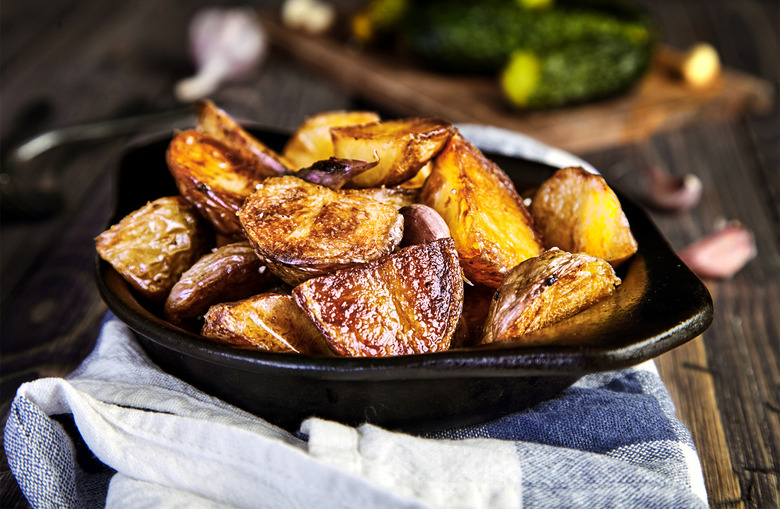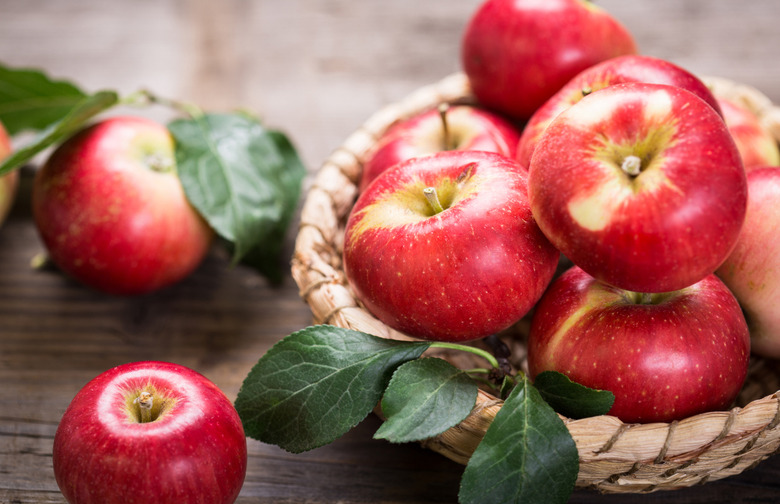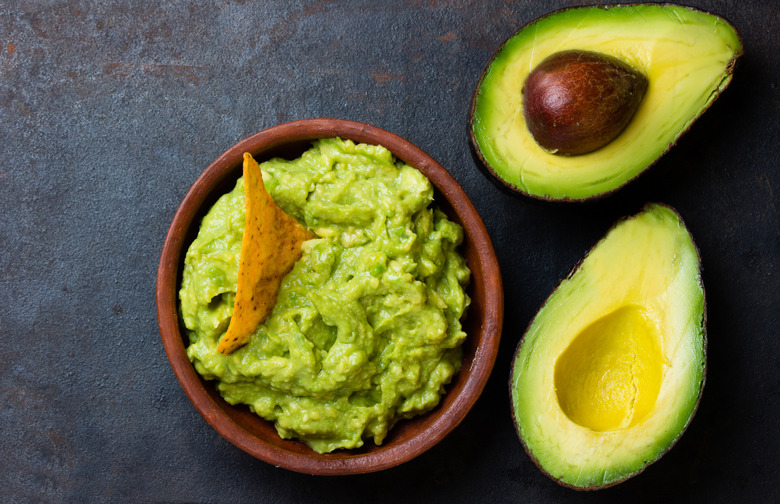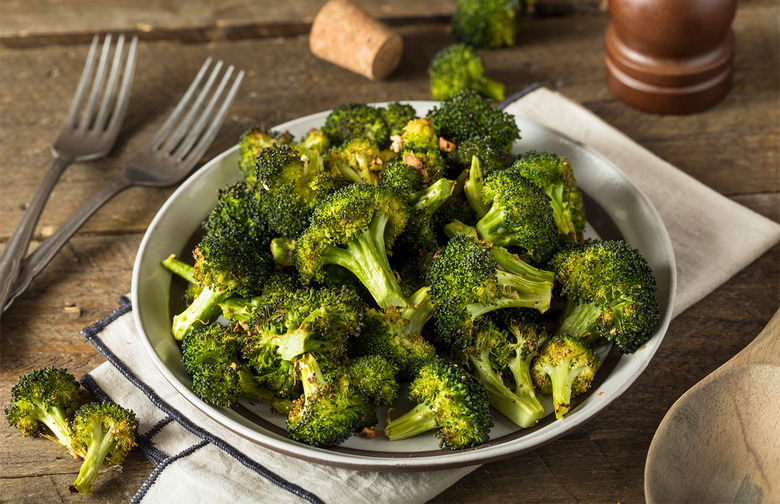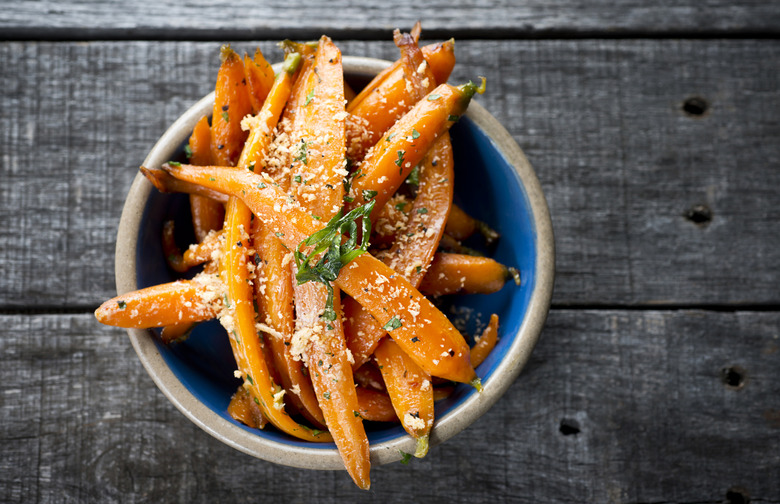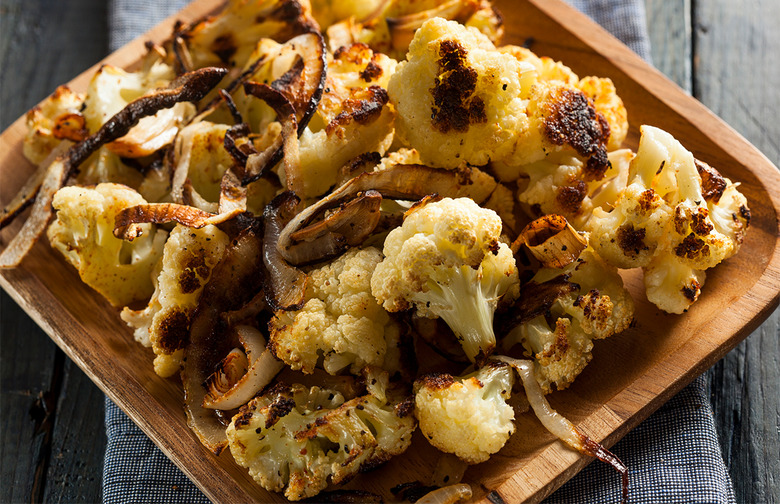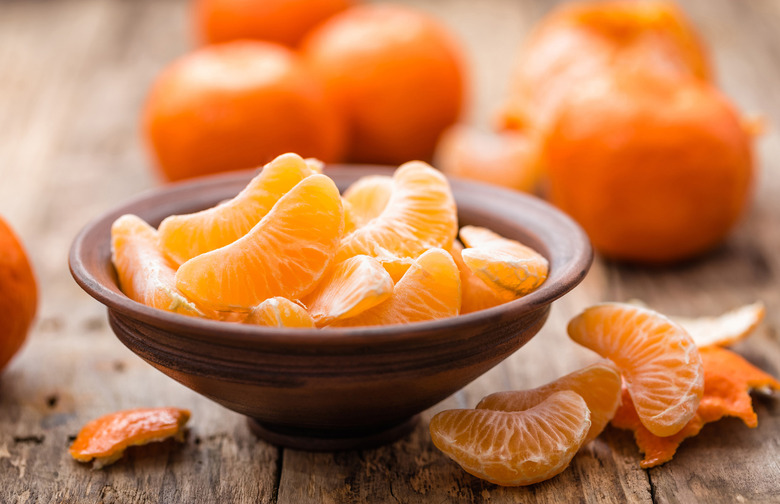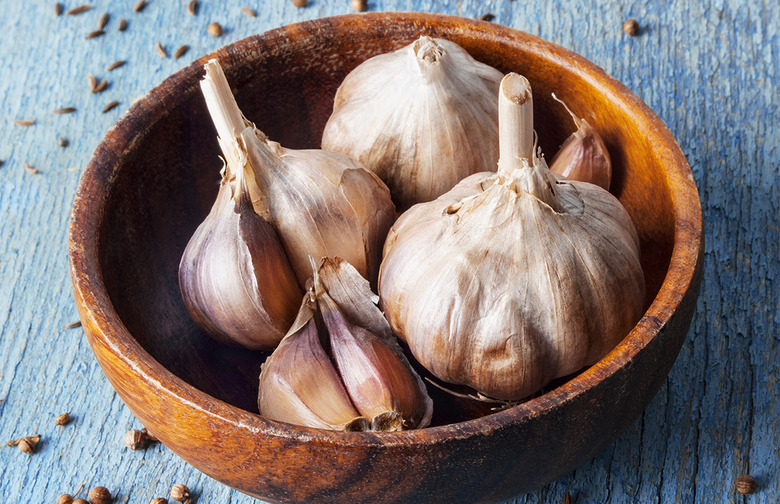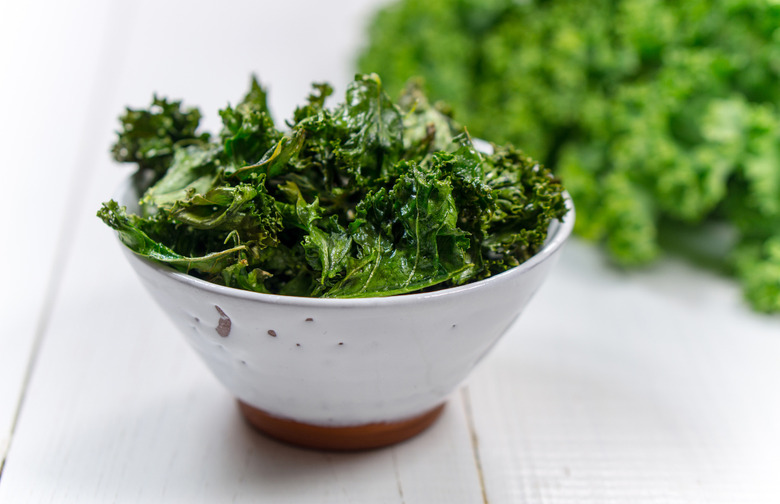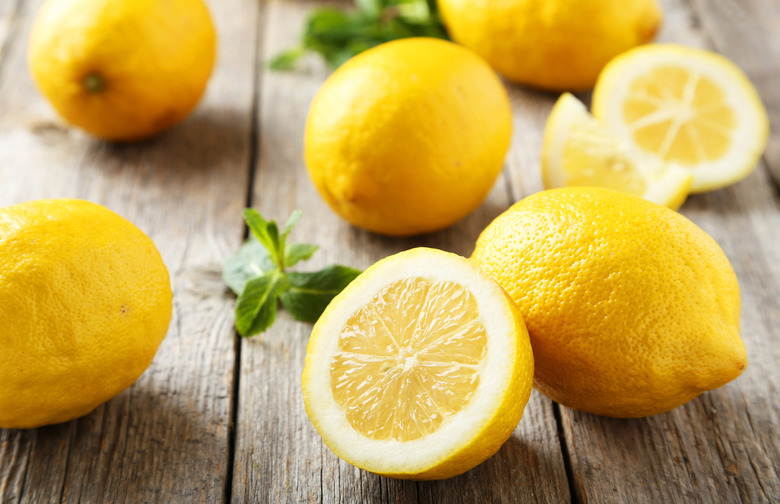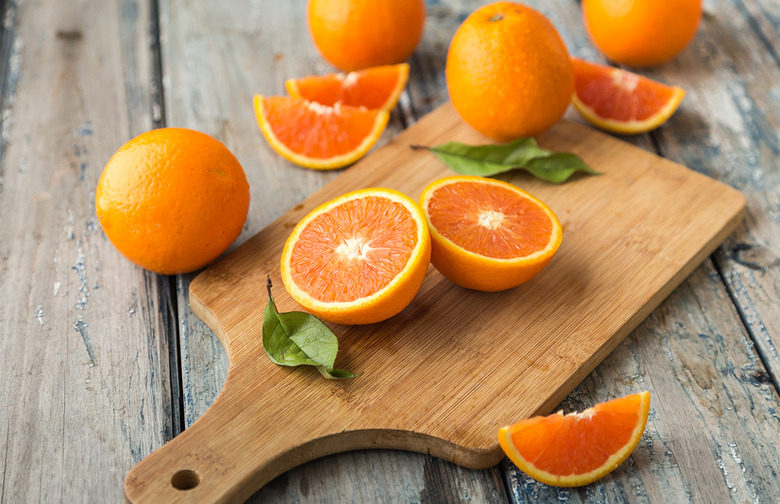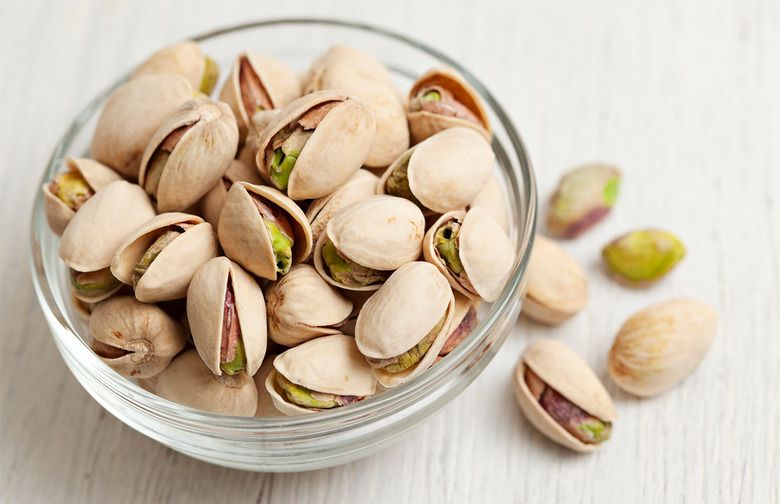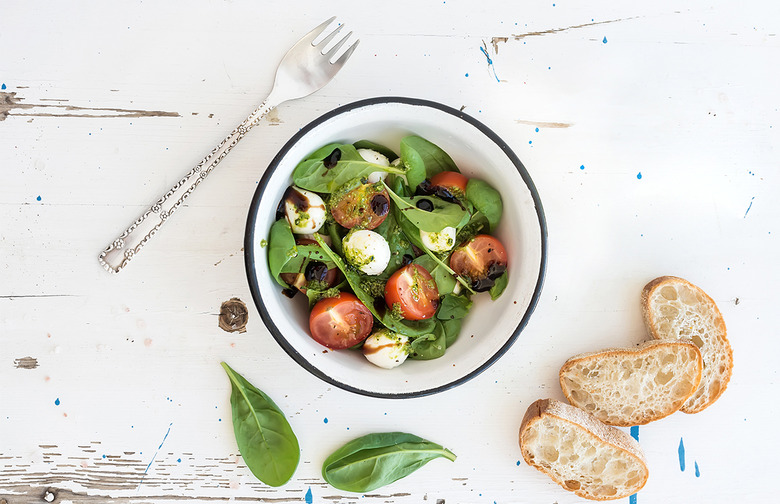Winter Superfoods You're Probably Already Eating (Gallery)
Off the top of your head, how many superfoods do you think you eat a day? Faced with the question, you might try to recall how many goji berry snack bars you manage to choke down or count the salads you bought made with vegetables you've never heard of.
But adding more superfoods to your diet is a lot easier than you'd think. You don't have to break the bank buying the latest super-grain to hit the shelves. You don't have to get 90 percent of your meals from that trendy juice shop that opened downtown.
In fact, chances are you're eating a whole bunch of seasonal superfoods already. A superfood is just any food that's filled with nutrients. There's no "National Superfoods Council" deeming some foods super and others not; and if there were, all nutritious foods would get their coveted seal of approval.
Winter seems barren and dull, but it actually offers a good amount of healthful produce you'll find marked down in the colder months. It's completely okay to nourish yourself with cozy winter classics like macaroni and cheese and pecan pie, so long as you're also getting the vitamins and minerals your body craves. In-season superfoods, like the ones on this list, could help you feel your best all season.
Here are 15 winter superfoods so common you're probably already eating them.
Apples
A staple of many fall menus, apples remain in season through the winter, too. The particular species of apple may not be the same — you might see more Lady Alice than Galas, for example — but the benefits are consistent across the month. In an apple, you're getting fiber, potassium, vitamin C, vitamin K, and so much more.
Avocado
There's so much more to these fruits than healthy fats. In addition to the monounsaturated fats in their squishy interior, you'll get vitamin K, copper, folate, vitamin B6, potassium, vitamin E, and vitamin C. Not that they're bragging or anything. Ever since the avocado toast craze began, these plump pieces of produce have been flying off the shelves.
Broccoli
Broccoli is a basic, used in salads, soups, casseroles, and more traditional cozy dishes. The cruciferous, crunchy vegetable is perfect for a comforting and warm winter dish. Load up your cheesy casserole with broccoli and you'll get the benefit of potassium, vitamin B6, manganese, and half a dozen other mood- and brain-boosting nutrients.
Carrots
Whether they're paired with hummus, dipped in ranch, or shredded over salad, these crunchy orange vegetables are an inexpensive and colorful way to add nourishment to your plate. Carrots are known for being great for your eyesight — and they are. But they offer a lot more benefits than that. Carrots have biotin, making them very good for your skin and hair. They're also lush with minerals like potassium.
Cauliflower
You might not be cooking with this vegetable very often — though there are dozens of ways to do so — but go to any restaurant this season and you're likely to see cauliflower on the menu. Delicious when roasted, cauliflower contains choline, a rare nutrient also found in egg yolks, alongside other vitamins such as K and C.
Clementine
These miniature fruits are a classic after Christmastime. They make colorful centerpieces in a fruit basket and can be cheaply bought in bulk. Consider picking up a crate on your next grocery run for the calcium, magnesium, potassium, and phosphorous bursting inside.
Eggs
Who knew superfoods could be so simple? Eggs, the staple of breakfasts and brunches galore, are chock full of nutrients vital for wintertime. Healthy fats are especially essential for your body to keep itself warm during these chilly months, and the iron, carotenoids, and other vitamins and minerals help your body ward off sickness and stay healthy. There are over 50 ways to cook them, so you'll never tire of serving eggs!
Garlic
Luckily, you probably get this superfood at almost every meal. It might make you smell bad, but this flavor booster is a huge mood-booster as well — the vitamin B6 helps gives your body energy during this sun-deprived season. From garlic, you'll also get phosphorous, calcium, potassium, iron, copper, and even the rare nutrient selenium.
Kale
This vegetable gets a lot of attention, but it truly can't be overhyped. In addition to healthy fiber, kale has thiamin, folate, iron, magnesium, vitamin A, calcium.... The list goes on. The trick to making kale palatable is to either cook it right or massage it well. You might not be keen on massaging a bushel of leaves, but the change in texture is well worth the effort. Use healthy oil, like olive or avocado, to wet the leaves and massage until they turn darker in color.
Lemons
You don't have to start biting these sour fruits whole. But squirt some lemon juice in your water or cook a zesty recipe with the citrus fruit to reap some of the many benefits. Of course, drinking lemon water has perks of its own, but any method of consuming the fruit could give you at least a dozen vitamins and minerals like potassium and vitamin C.
Oranges
The phrase should really go, "An orange a day keeps the doctor away," since these citrus fruits are such great immune boosters. In the heart of cold and flu season, you're going to want to stock up on the vitamin C-rich food.
Pistachios
Nicknamed the "skinny nut" for their low calorie count, there's more to pistachios than just ease of snacking. In each 50-kernel serving, you get a large dose of antioxidants, copper, and vitamin B6.
Potatoes
There are countless ways to eat potatoes. Scalloped, mashed, or fried, the potato is the winter superfood you'll always crave. Don't let the downsides of French fries scare you off — the vegetable, served in any form, has vitamin B6, calcium, manganese, and more beneath its skin.
Spinach
If you're not a fan of kale, don't fret — spinach has your back. Packed with similar benefits to the crunchy vegetable, spinach makes an apt replacement to kale or any other leafy green. Blend some into a green smoothie, make a crisp spinach salad, or cook some up any way you like. The sky is the limit with this versatile green!
Sweet Potato
Sweet potatoes are famous for being the "healthier" potato, but the truth is that both kinds have benefits of their own! Like carrots, sweet potatoes get their orange tint from carotenoids — a type of vitamin that helps maintain the health of your eyes. They also contain vitamin C, to help support your immune system. Try giving your immunity a jolt with one of these immune-boosting recipes to get you through flu season.
These are some of the most common ones out there, but in terms of superfoods, there are so many more fruits and vegetables to discover. Click here for the 25 best winter superfoods.
